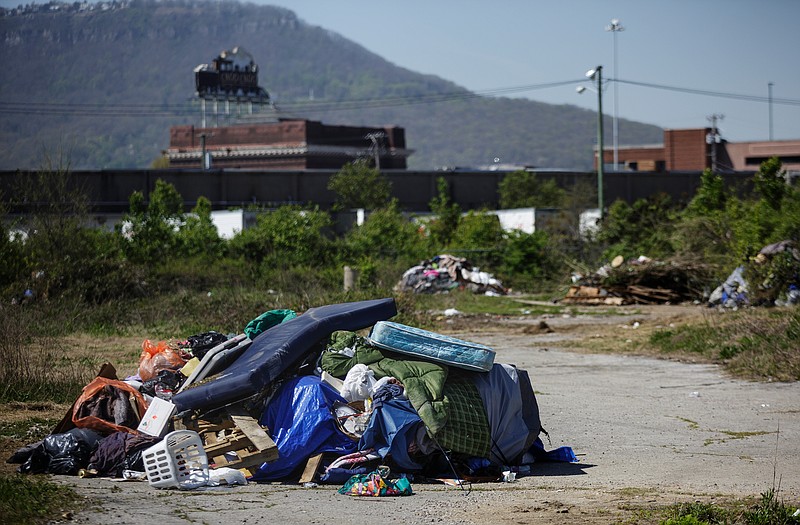The Southeast Tennessee Region, including Chattanooga, has achieved a "functional zero" rating for veteran homelessness, a national standard indicating that veteran homelessness is rare and brief in a given area.
The region is just the 11th nationwide to earn functional zero status.
This certification comes from Built for Zero, a movement of around 85 cities and counties across the country working to measurably end homelessness led by the nonprofit Community Solutions.
Earning functional zero locally is the result of years of efforts of 10 local organizations, spearheaded by the Chattanooga Regional Homeless Coalition.
(READ MORE: City expanding program in effort to help city's homeless population)
"Today's announcement celebrates a system that has made homelessness among veterans rare and brief when it occurs, and it has inspired confidence that we can maintain this reality for veterans in Chattanooga and across Southeastern Tennessee," Wendy Winters, executive director of the Chattanooga Regional Homeless Coalition said in a release Thursday morning. "By reaching functional zero, Chattanooga and Southeast Tennessee is able to use live data to prove it has built a homeless response system that can achieve functional zero and sustain it, even if new veterans experience housing crises over time."
This milestone builds on an achievement in 2017, when the City of Chattanooga met the federal criteria and benchmarks for ending veteran homelessness set by the United States Interagency Council on Homelessness, the federal body charged with implementing the federal strategic plan to prevent and end homelessness.
"Over the last 4 years, our community has come together to move 375 veterans into permanent housing, and counting," said Emma Beers, community lead for the Southeast Tennessee region. "This achievement wouldn't have been possible without the hard work of staff across agencies that remain tirelessly dedicated to keeping those who served our country off the streets."
Though the efforts represent a broader trend in the region, the results are clearly aligned with the priorities and efforts of Chattanooga Mayor Andy Berke, who has poured resources into the city's homelessness service throughout his seven years in office.
This year alone, the budget included more than $1.3 million in funding, up 87% from $731,644 in 2019, and 196% from $462,000 FY18.
The funds included more than $750,000 earmarked for personnel and more than $600,000 distributed among Family Promise, Room at the Inn, Goodwill Furniture Bank and the Homelessness Coalition, which aid the homelessness population through financial and material donations as well as temporary shelter.
